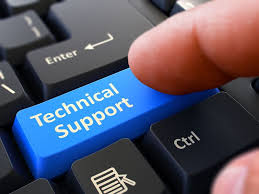Top Small Business SEO Trends across the United States, 2025 is shaping up to be a pivotal year in the world of digital marketing. As more customers search online before making any buying decision, visibility on Google is no longer optional — it’s critical for survival. But SEO isn’t what it used to be five years ago. Algorithms have evolved, search behavior has changed, and new technologies are reshaping how small businesses are discovered online.
To stay ahead in 2025, small business owners must adapt to these changes. Whether you’re running a bakery in Brooklyn, a law firm in Dallas, or a marketing agency in Los Angeles, staying current with the latest small business SEO trends could be the difference between showing up on the first page — or not showing up at all.
Let’s dive into the most important Local SEO trends that small businesses simply can’t afford to ignore this year.
User Experience is Now a Ranking Factor — Not Just a Bonus
In 2025, search engines like Google are placing even more weight on user experience (UX) as a core ranking signal. That means if your website loads slowly, isn’t mobile-friendly, or frustrates visitors, your chances of ranking well drop significantly.
For small businesses, this means your SEO strategy must go beyond keywords and backlinks. Page speed, clean navigation, engaging layouts, and responsive design all play a direct role in your visibility. A well-optimized website that works smoothly on every device is no longer a nice-to-have — it’s a must-have.
Modern SEO is about satisfying search intent while delivering a flawless experience. Google’s algorithm updates now track bounce rates, dwell time, and mobile usability to determine rankings. That’s why investing in better hosting, compressing images, and minimizing JavaScript is no longer optional.
Voice Search Optimization Is Gaining Serious Momentum
As voice-activated devices like Alexa, Siri, and Google Assistant become more common, voice search optimization has exploded in relevance. In 2025, nearly 50% of all online searches are expected to be voice-based — and small businesses need to catch up.
The biggest shift with voice search is how people phrase their queries. Instead of typing “coffee shop Boston,” users say, “What’s the best coffee shop near me open now?” That means optimizing your content for natural language, long-tail keywords, and question-based phrases is essential.
Small businesses should create FAQ pages, use conversational headings, and structure content to answer specific customer questions. This will help you rank in voice search results and position your brand as the local expert.
Local Small Business SEO Is More Personalized Than Ever
Local search has always been important for small businesses, but in 2025, it’s evolved into something even more powerful — and more complex. Google’s local algorithm now uses AI to personalize search results based on user behavior, location, and even time of day. Thus it is very necessary to use Top Small Business SEO Trends strategy.
That means two people searching for the same service in the same city may see different results, based on their past activity or current location. For small businesses, the key is to maintain consistent local signals across every platform — from Google Business Profile and Apple Maps to Yelp and Bing Places.
You also need to focus on proximity, prominence, and relevance. Optimize your business profile with updated hours, real photos, service descriptions, and customer Q&A. Encourage and respond to reviews. And keep your NAP (Name, Address, Phone) information consistent everywhere.
Location-based schema markup, localized landing pages, and city-specific content will also help search engines understand your relevance and boost your visibility for “near me” and city+service searches.
AI Content Creation Is Here — But Quality Still Wins
There’s no denying that AI tools have transformed how content is created. From generating blog posts to writing meta descriptions, small business owners are using platforms like ChatGPT, Jasper, and SurferSEO to speed up content production.
But in 2025, AI content alone won’t cut it. Google’s new ranking systems use algorithms like “Helpful Content Update” and “E-E-A-T” (Experience, Expertise, Authoritativeness, and Trust) to prioritize content that truly delivers value.
Small businesses must ensure that AI-generated content is edited, fact-checked, and enriched with human insight. Focus on content that answers real customer questions, provides local relevance, and reflects your brand’s voice. Adding personal experience, testimonials, and unique visuals can boost your trustworthiness and rankings.
Zero-Click Searches Are Dominating the SERPs
If you’ve noticed that more search results give answers directly on the Google results page — you’re not alone. These are called zero-click searches, and in 2025, they’re more prominent than ever.
Featured snippets, People Also Ask boxes, local packs, and knowledge panels are absorbing traffic before users even click a link. For small businesses, the challenge is not only ranking high but owning these prime real estate positions.
To do that, structure your content using H2 and H3 tags, answer common questions concisely, and use schema markup to help search engines better understand your content. Focus on answering “what,” “why,” and “how” type questions early in your content. The goal is to provide so much clarity that Google pulls your answer into a featured result.
Video SEO and Visual Search Are Driving Traffic
In 2025, search engines are smarter about video content — and users are consuming it more than ever. Video SEO is no longer a bonus for your strategy. It’s essential.
YouTube is the world’s second-largest search engine, and Google now features video carousels in standard search results. That’s why more small businesses are creating how-to videos, service explainer clips, and customer testimonials — then optimizing titles, descriptions, and transcripts with targeted keywords.
Additionally, visual search using tools like Google Lens is becoming mainstream. This means your images need to be optimized with descriptive alt text, proper filenames, and structured data. If you run a product-based business, high-quality, SEO-friendly images can drive significant traffic through Google’s visual discovery tools.
Mobile-First Indexing Is Still Critical
Mobile-first indexing means Google predominantly uses the mobile version of your website for ranking and indexing. In 2025, this has become non-negotiable. If your mobile experience is poor, your rankings will suffer — even on desktop.
For small businesses, ensuring that your website loads quickly, looks clean on all screen sizes, and offers easy-to-tap navigation is vital. Use responsive design, avoid intrusive popups, and make sure forms, maps, and menus work seamlessly on mobile devices.
A growing number of users search directly from smartphones, especially for local services. Make mobile optimization a top priority in your SEO checklist — not an afterthought.
Authority and Trust Still Reign Supreme
With rising misinformation online, Google’s algorithm heavily favors content that is trustworthy, accurate, and written by experts. In 2025, small businesses must focus on building authority in their niche.
That means earning backlinks from reputable sources, collaborating with local organizations, and publishing content under a real author with verifiable credentials. Even something as simple as having an About page with real team bios can help Google and users trust your website.
Display customer reviews, industry certifications, and case studies prominently. These trust signals not only help SEO — they convert more visitors into paying customers.
Final Thoughts: Adapting to Top Small Business SEO Trends in 2025 You Can’t Ignore
SEO is no longer just about inserting keywords into pages. In 2025, Top Small Business SEO Trends is about creating a complete digital experience — one that is fast, helpful, locally relevant, mobile-friendly, and backed by real authority.
The good news is that you don’t need a massive budget or a full-time marketing team to compete. By staying informed about trends like voice search, AI content, local SEO, and video optimization, small businesses can build powerful organic visibility that fuels long-term growth.
At Remote Expert Solutions, we help businesses across the USA implement modern, results-driven SEO strategies built for 2025 and beyond. Whether you’re just getting started or looking to refresh your current efforts, our experts will help you grow smarter, rank higher, and attract more of the right customers — without breaking the bank.
FAQs Of Small Business SEO
Q1: What is the most important SEO trend for small businesses in 2025?
User experience, local SEO, and voice search optimization are three of the most important areas for small businesses to focus on in 2025.
Q2: Can small businesses compete with larger companies in SEO?
Yes. With the right strategies — like local SEO, personalized content, and voice optimization — small businesses can outrank larger competitors in niche and geographic searches.
Q3: How often should I update my SEO strategy according to Top Small Business SEO Trends?
Your strategy should be reviewed every 3–6 months. Google updates its algorithm frequently, and staying current ensures your content and website stay competitive.
Q4: Is it worth investing in AI content tools for SEO?
AI tools can help speed up content creation, but human editing is crucial. Use AI as a starting point, then refine content to align with your brand and SEO goals.
Q5: What’s the best way to track SEO success in 2025?
Use tools like Google Search Console, Google Analytics 4, and SEMrush to monitor traffic, rankings, page speed, mobile performance, and user engagement metrics.







One Response
https://ufo.hosting/